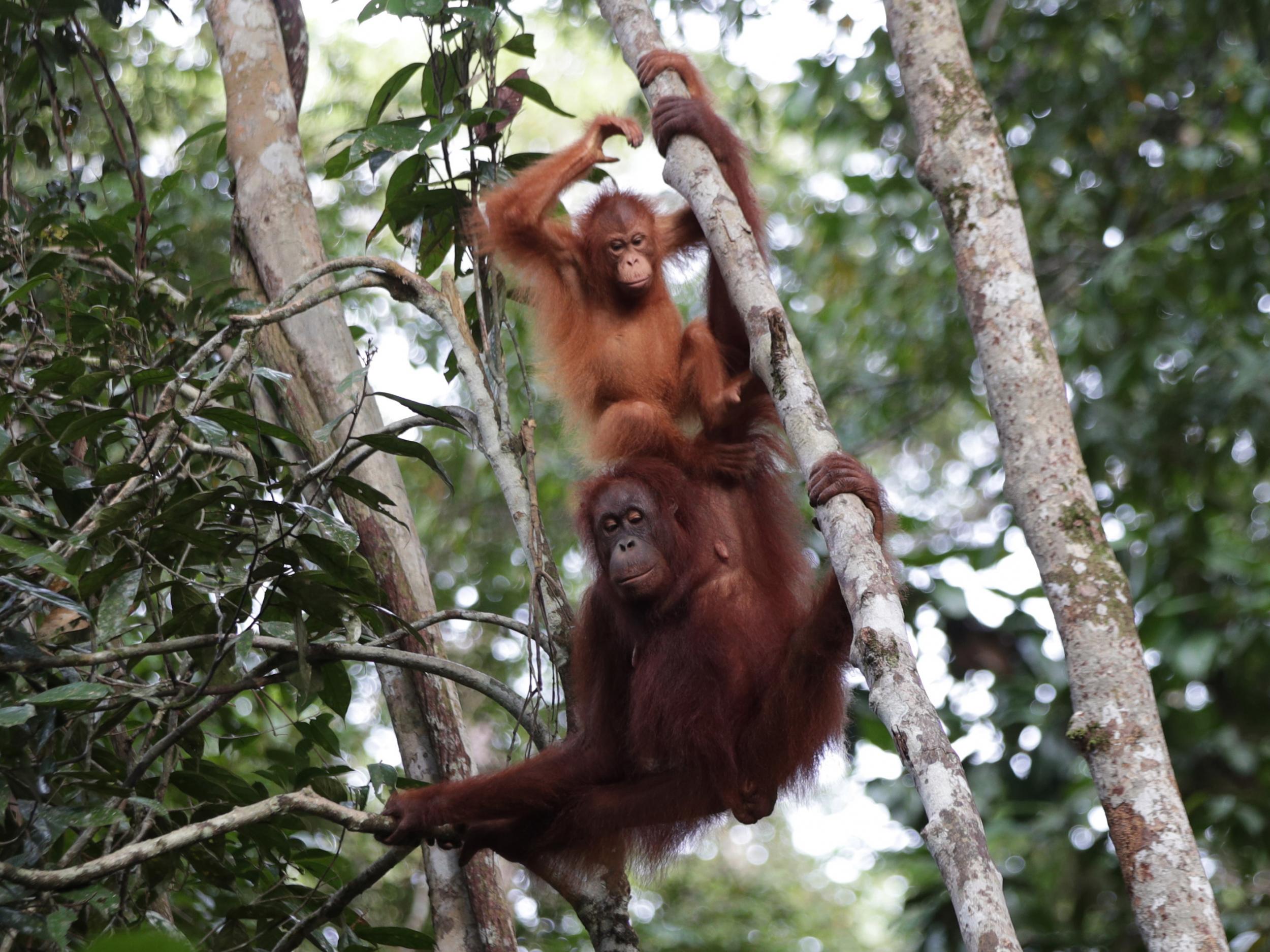Borneo's last remaining orangutans threatened by illegal logging, despite government protection
Peatland forest is being exploited in 'major embarrassment for Indonesian government,' Greenpeace claims

The forest which is home to some of the last remaining Bornean orangutans is being logged despite the Indonesian government’s vow to protect it, Greenpeace has claimed.
The group said six illegal logging settlements had been identified in Sungai Putri, the peatland forest home to around 1,200 of the critically endangered apes.
Campaigners obtained photos and aerial drone footage showing an extensive drainage canal full of water, heavy earth-moving equipment and planting of pulp wood tree seedlings.
The Indonesian government has previously ordered a moratorium on drainage and logging in the country's peatland forests following extensive dry season fires in 2015.
They were blamed on the drainage of swampy peatlands to create industrial plantations, which had left the forests highly combustible.
The new evidence produced by Greenpeace comes after the Indonesian environment and forestry minister Siti Nurbaya called for the company responsible to cease operations in March.
“This is a major embarrassment for the Indonesian government, which has consistently promised to protect Sungai Putri,” said Ratri Kusumohartono, Greenpeace Indonesia forest campaigner.
“The government cannot let this stand – it must uphold the law and ensure the full and permanent protection of this beautiful and important forest.”
The ministry's director-general of law enforcement and its director of environmental disputes did not respond to calls or text messages.
The ForestHints website, a semi-official news site for the ministry, said in an article earlier this month that Ms Nurbaya had "displayed great consistency" in making sure Sungai Putri is not cleared.
It said the forest would "unquestionably have been destroyed" without the ministry's previous sanctions.
Exploitation of the Sungai Putri forest and Chinese investment in a related wood-processing plant is supported by provincial and district officials in West Kalimantan province on Borneo.
An Indonesian company, Moharison Pawan Khatulistiwa, has a forestry ministry permit for logging in the forest, and a forestry ministry-approved work plan, both of which are now overridden by the moratorium on peatland development.

Greenpeace said it was unclear whether the company was carrying out the logging or if other parties had taken advantage of roads built by the company to further encroach on the forest.
The wood was supplying sawmills and furniture businesses in the Ketapang region of West Kalimantan, it said.
A study published in February reported that Borneo had lost more than 100,000 orangutans in the space of just 16 years.
Over the last decade, the Centre for Conservation of Natural Resources in Indonesia together with the animal welfare organisation International Animal Rescue (IAR) have rescued over 30 orangutans in Sungai Putri and the surrounding area.
However, the great apes continue to be threatened by hunting, logging and palm oil expansion.
“Habitat destruction forces orangutans to enter neighbouring plantations and farms looking for food and this frequently leads to conflict with humans,” said Karmele Llano Sanchez, programme director of IAR in Indonesia. Sungai Putri is home to one of the largest populations in the world and we are at a critical point for the Bornean orangutan, without forests like this they can’t survive.”
Additional reporting by AP.
Join our commenting forum
Join thought-provoking conversations, follow other Independent readers and see their replies
Comments
Bookmark popover
Removed from bookmarks